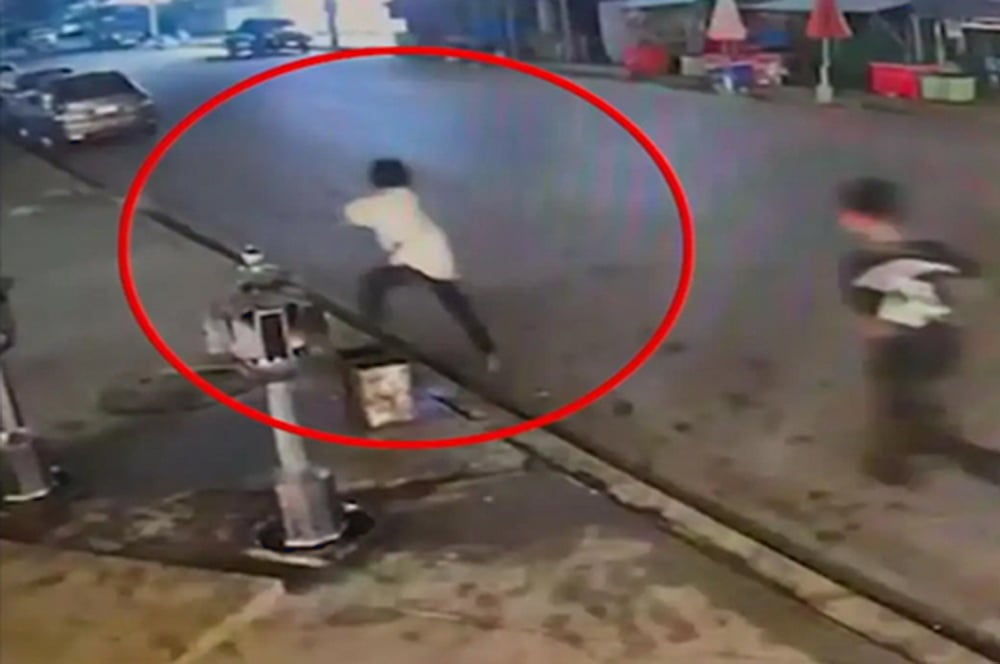
Jan. 20, 2024 – A case in which 5 children and youths mutilated, killed Mrs. Bhubaban Dansu or “Aunty Bhubaban” and dumped the body in a pond to cover up the case is in the news. The incident took place on January 12, 2024 in Aranyaprathet district. Sa Kaeo Province Arranyaprathet Provincial Police Officers Mr. Panya Kongkhamsaen or the husband “Uncle Biak” was brought in and interrogated and admitted to be responsible for the incident. Later, evidence emerged that the deceased husband had been tortured and intimidated by the authorities into confessing. including indicating the location of the incident
Today, the National Human Rights Commission (NHRC) is following up on the news of the above incident and is looking into the actions of the police or investigators at the Arranya Pradet Provincial Police Station. does not comply with the principles of rights of the accused or the defendant in the criminal justice process. In many respects, including performing duties inconsistent with human rights principles, namely the 2017 Constitution, Article 4 lays down the principle that human dignity, rights, freedom and equality of individuals shall be protected. Article 27 states that all Thai people have equal protection under the constitution and that all people are equal before the law. Rights and freedoms are equally protected by law. Unfair discrimination against individuals whether on account of differences in economic or social status or for any other reason cannot be done. But it is clear in the case that “Auntie Buaban” and “Mama Biak” were not protected by the law as they should have been. And efforts are being made to help criminals who have been treated unfairly. Instead it creates a situation where “Mama Biak” becomes a “scapegoat” or worse defendant.
The use of “Mama Biak” to prepare a confession is contrary to the principle of presumption of innocence under Article 29 of the Constitution of the Kingdom of Thailand, 2017 and the International Covenant on Civil and Political Rights. (International Covenant on Civil and Political Rights: ICCPR) Article 14: “In a criminal case, the accused or the defendant shall be presumed not guilty. and there is a final judgment that a crime has been committed and that person will not be treated as if he or she had committed the crime.” It is a fundamental right to protect an accused person from being presumed guilty until such principle is proved beyond reasonable doubt.
At the same time, the Constitution of the Kingdom of Thailand, Article 68 and the ICCPR Rules, Article 14, lay down the principles. Government should provide necessary and appropriate legal aid. By providing lawyers to those who are poor or disadvantaged in accessing the justice process. And the accused must be informed of the charges immediately. For this reason, in any legal proceedings against the accused, the investigating officer must notify the accused in accordance with the Code of Criminal Procedure, which in accordance with the provisions of the ICCPR, must also inform the accused. A person entitled to legal aid. They have the right to consult with a lawyer or someone they trust. If the officer does not notify the accused and inform the accused of his rights, this is an act of violation of rights.
Also in the process of justice
In addition, considering the rights of individuals not to be subjected to torture or inhuman or degrading treatment or punishment, the NHRC considered that the police officers took “Mama Biak” to interrogate him in an air-conditioned room. But take your shirt off. Bring a black bag to cover your head. and coerced or intimidated into giving a confession which is an act causing severe physical or mental pain or suffering. And it is a cruel act. It also amounts to inhuman or degrading treatment or violation of fundamental human rights State or government authorities may not use torture to obtain information or confessions from an accused or defendant in criminal proceedings. Such actions are therefore considered a violation of the right not to be tortured. It is an offense under the Prevention of Torture and Disappearance Act BE 2022. If the superior officer knows but does not take steps to stop the crime, he is also liable to his subordinates under this Act. And the police's non-recording of video and audio in custody was also considered a violation of the Prevention of Atrocities and Suppression Act.
The NHRC wishes to emphasize the rights in the criminal justice process which is a fundamental human right of the accused or the accused. State or government authorities have a duty to respect, protect and fulfill various rights including those of all citizens. From the above cases, the NHRC will refer the matter to the Office of the Attorney General. and the Committee for the Prevention and Suppression of Torture and Enforced Disappearance. The facts should be investigated in order to punish the culprits. And to rehabilitate and provide physical and mental relief to the victims in accordance with their duties and authority.
At the same time, the NHRC will work with network partners to advance the issue of rights in the justice process. Access to justice for all especially to provide cabinet and related institutions. Promoting and protecting human rights, including amending and developing laws consistent with human rights principles.

“Avid gamer. Social media geek. Proud troublemaker. Thinker. Travel fan. Problem solver.”
